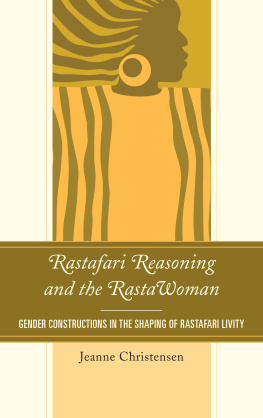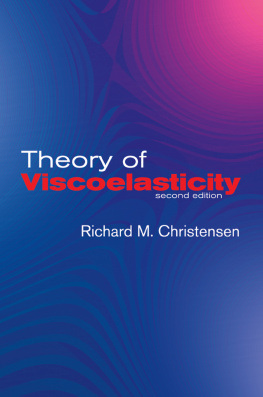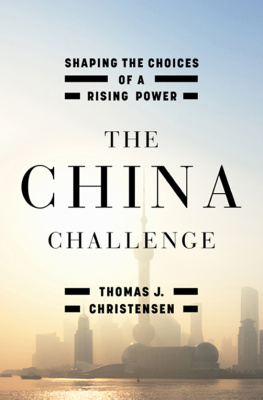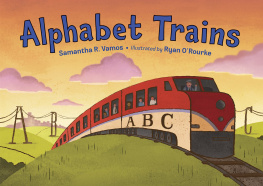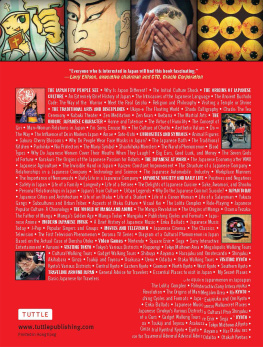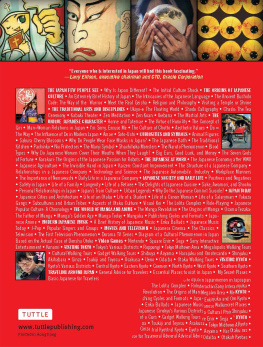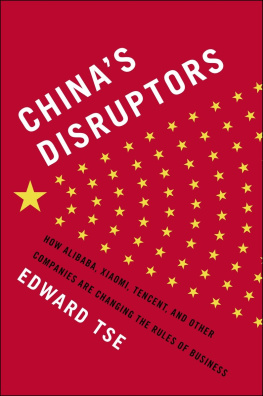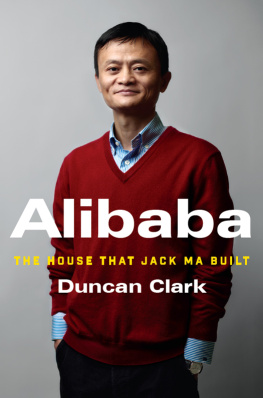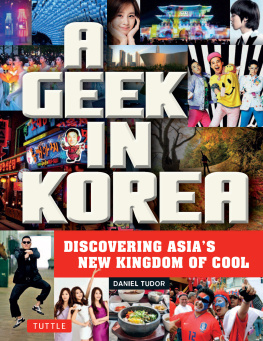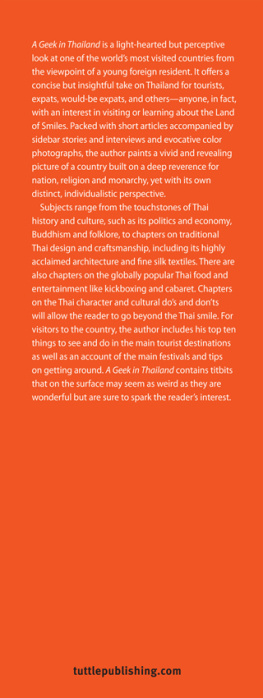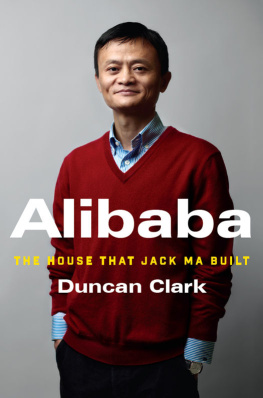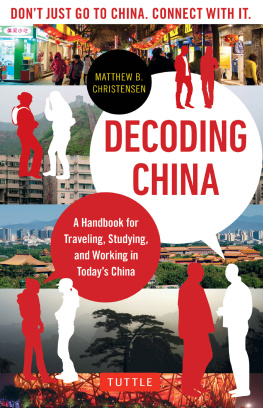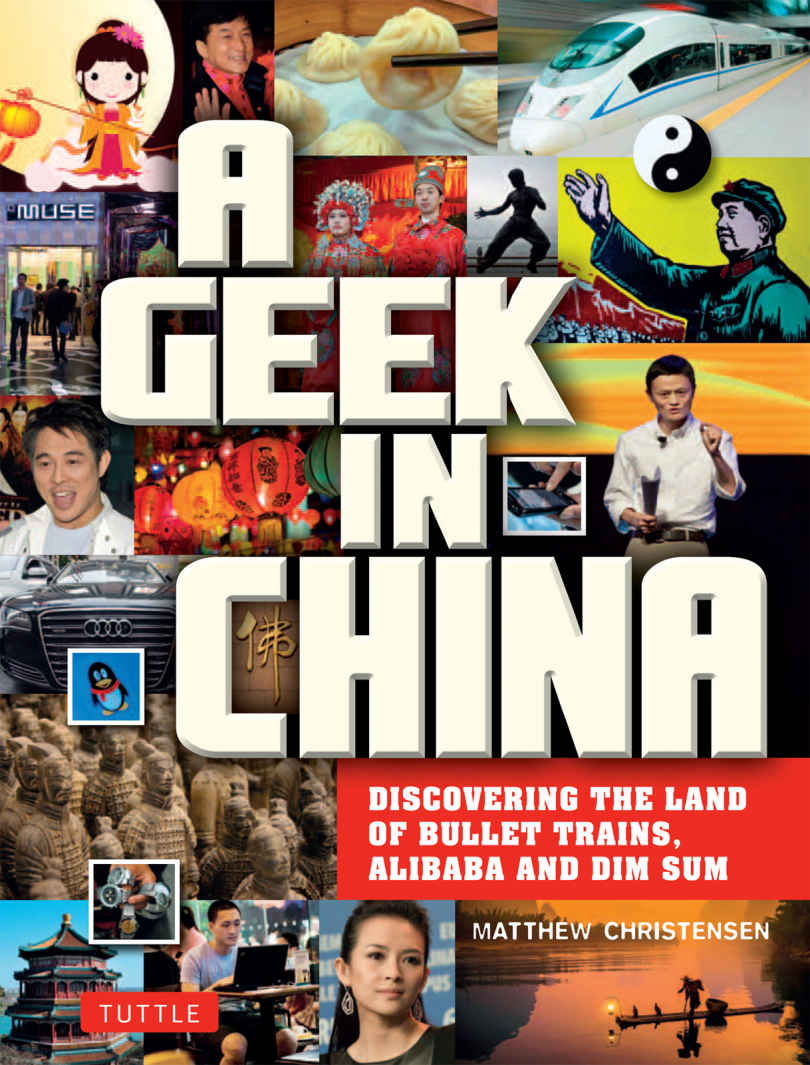


Contents

CHAPTER 1
CHAPTER 2
CHAPTER 3
CHAPTER 4
CHAPTER 5
CHAPTER 6
THE CHINA FEW PEOPLE SEE
In a single generation, China has evolved from an ancient civilization into a modern nation. Reminders of the past are everywhere, from the Great Wall to the deference and respect with which people treat their elders. China has now stepped onto the world stage as a great power, but for a long time we knew next to nothing about it. And practically everything that we now touch in our daily lives comes from China, from the clothes we wear to the iPhones we carry.

A PLA soldier at the entrance to the Forbidden City.
China formally introduced itself to the world in 2008 when Beijing hosted the Summer Olympic Games. For many people, this was their first close look at China. Before this, their vision of the country centered around ping-pong, panda bears, kungfu and tea. In the past two decades, the West has witnessed an emerging world power that in some ways looks like any other modern nation but in others looks awfully foreign.
Since I first visited China in the early 1980s, things have changed dramatically. At that time, China was emerging from a xenophobic period when it cut itself off from the rest of the world and was deeply entrenched in Communist ideology. With Mao Zedongs death and Deng Xiaopings economic reforms of the early 1980s, China began a slow transformation from a society where the central government owned and operated literally everything to a new hybrid society, the likes of which the world has never seen.
I have been traveling to China for almost 30 years now, and have spent many of these years training students to travel, work and study in China. Although China today looks superficially like a modern, Westernized country, under the surface it is very different. This includes things like humor, television and movies, cultural values, how the Chinese perceive and interact with the media, their history and daily practices, the kind of literature they value, social rules of conduct, what, how and where they eat, and so on. This book attempts to expose you, the reader, to the various things in China that make it quintessentially China. These are the things that all Chinese know and have grown up with. Understanding them will help to make your own experience of China much richer because you will understand why people do the things they do and think the way they think.
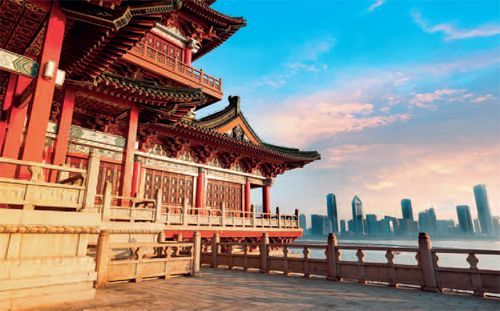
Old and new.
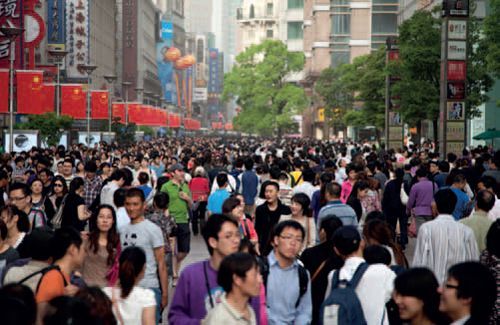
Nanjing Road, Shanghai, during the May 1st holiday.
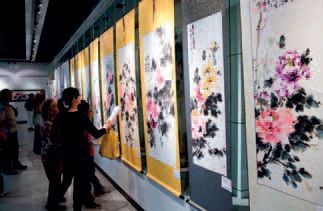
Chen Tianshu painting and calligraphy exhibition, Liuzhou.
WHY IS CHINA DIFFERENT?
For much of Chinas long history, it was largely cut off from the outside world and developed independently of the West. This was partly due to geography. High mountains and harsh deserts formed a natural barrier to the west and a large ocean to the east made it difficult to go in that direction. As a result, China has developed its own internal set of values and social structures:
1. Society in China is based on a set of Confucian principles that emphasize the importance of relationships and hierarchy.
2. In Chinese society, the group is the most important unit whereas in the West we emphasize the importance of the individual. In China, being part of a group or organization and maintaining harmony within the group, even being dependent on that group, is valued highly. In the West, we teach young people to think independently, to stand out and make a name for themselves. In China, parents teach their children to fit in and to avoid anything that might isolate them.
3. The Chinese written language is based on a set of characters or symbols that are not alphabetic and must be painstakingly memorized, which is a difficult task for every Chinese student. This presents a significant barrier for many individuals from other parts of the world.
4. China is one of the worlds oldest nations and has always placed great value on its history. Change comes very slowly here. Political and social structures developed 3,000 years ago still remain intact today. A change from autocratic rule to democracy is unlikely in the near future.
5. China has always been inward-looking. It has rarely been a conqueror or colonizing power. The Chinese name for China, Zhong-guo, means central kingdom. Outsiders were considered barbarians and the Chinese never had much desire to leave their borders or to learn from anyone else. There was very little contact with the West until the mid-1800s, and thus China stayed unique.
WHY CHINA IS SPECIAL TO ME
Im fascinated by antiquity and China is the ideal place to experience it. To walk a cobbled pathway along a stone city wall constructed a thousand years ago fills me with wonder. Who else has walked this same path? Reading poetry written 2,500 years ago gives me a glimpse into the lives of an ancient people, how they lived, their emotions and what they cared about.
Modern China is a wonderful mix of old and new where you find ancient Buddhist monasteries alongside gleaming high-rise buildings, glitzy multistoried restaurants next to dingy noodle shops right out of the Qing Dynasty, and high-fashion shoppers passing old men doing taichi in the park.
One of the things that continually draws me to China is its vast and varied cuisine. A fantastic meal is just around the corner no matter where you are in China.
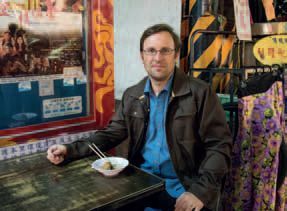

A couple and their child on a scooter. Until recently, urban couples could officially have only one child.
MY INITIAL CULTURE SHOCK
My first exposure to Chinese culture was in Hong Kong where I lived for a year and a half. Being a British colony, Hong Kong is much more Westernized than the rest of China. But when I first boarded a plane to Shanghai, I could see immediately that things were going to be very different. The plane was full of Chinese men all wearing similar dark blue or green trousers and jackets and all smoking hand-rolled cigarettes. They all wore white shirts. Every single one of them.
The first thing you notice when you leave the airport in China in summer is the intense heat, the ear-splitting noise and the strange smells. These sensations can be overwhelming for a first-timer to China, like a hard slap in the face. The air and noise pollution are certainly more than you ever expected. In large cities, you seldom see the sun and the sky is usually gray or yellow.



